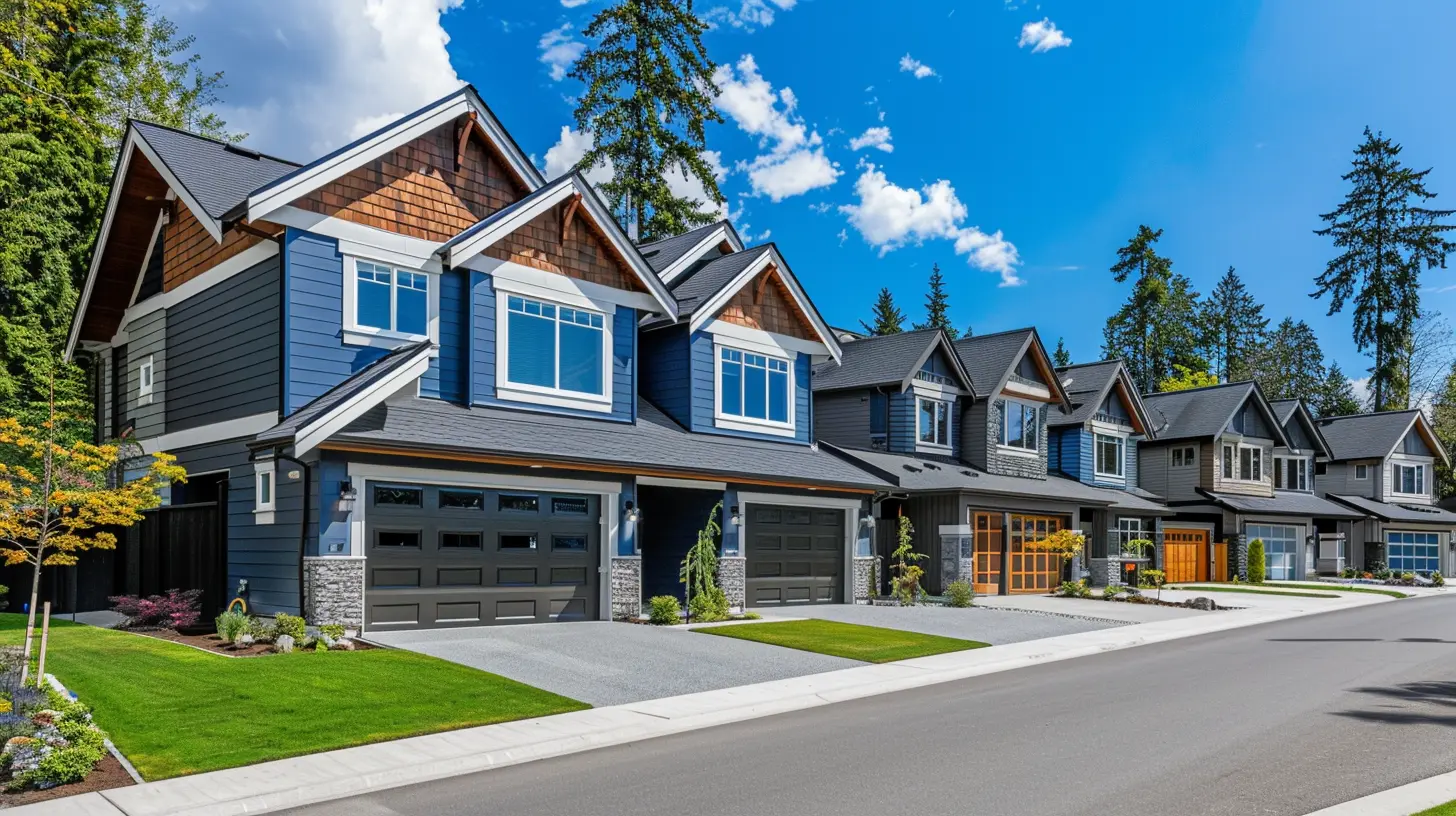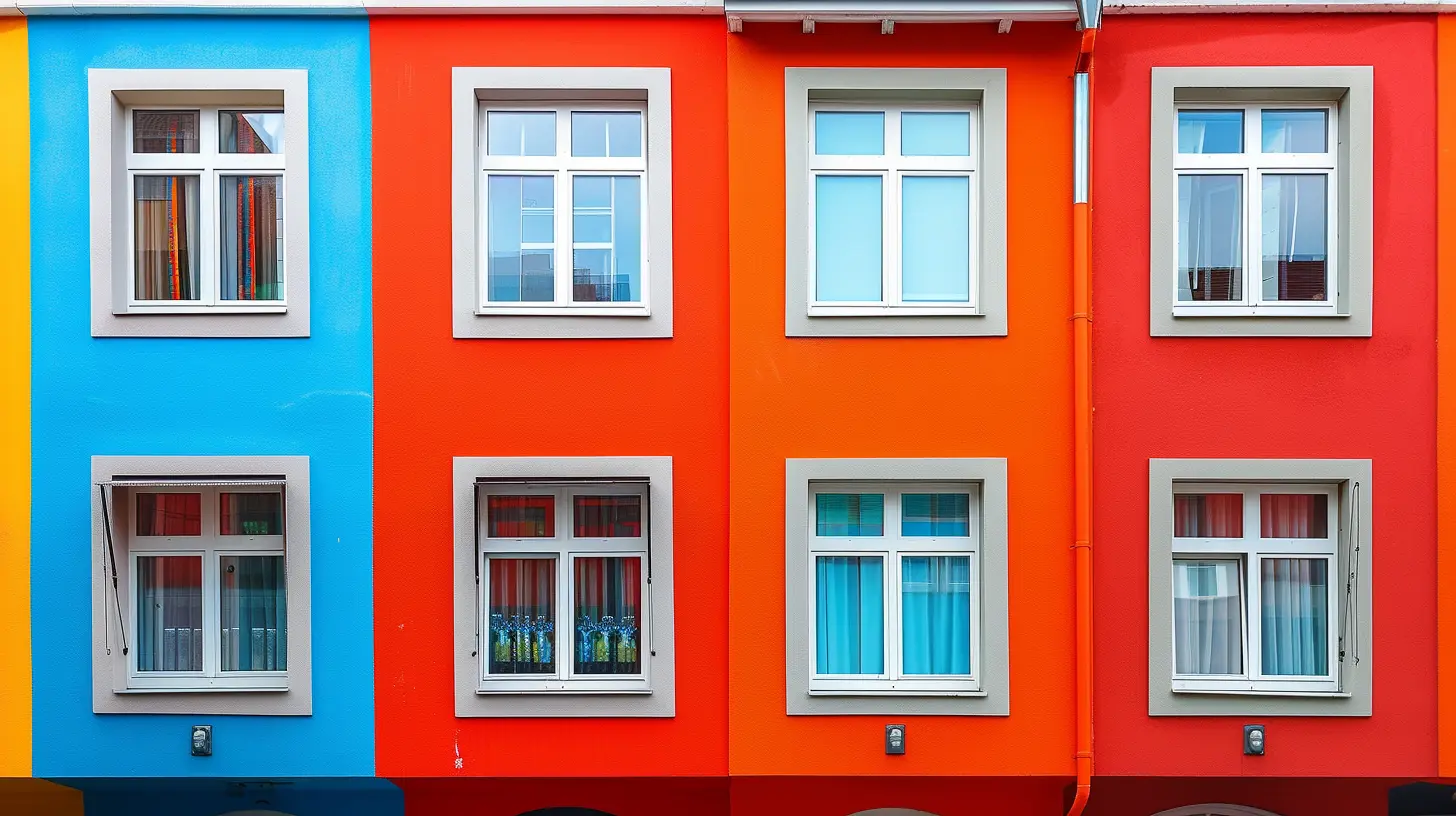4 April 2025
When it comes to finding a place to call home, one of the biggest financial decisions you'll ever make is whether to rent or buy. It's a classic debate, and honestly, there's no one-size-fits-all answer. Some people swear by the idea of homeownership, while others prefer the flexibility of renting.
But here's the thing—this choice isn't just about money. It's about lifestyle, goals, and personal circumstances. So, let's break it down from a financial perspective and see which option makes the most sense for you. 
The Financial Basics: Renting vs. Buying
Before we dive into the nitty-gritty, let's lay out the fundamental differences between renting and buying from a financial standpoint.Renting:
✅ Lower upfront costs – Usually just a security deposit and first month's rent.✅ Flexible lifestyle – Easier to relocate without the hassle of selling a home.
✅ No maintenance costs – The landlord typically handles repairs and maintenance.
✅ Predictable expenses – Rent and utilities are usually straightforward.
❌ No equity building – You’re paying for a place to live but not gaining ownership.
❌ Rent increases over time – Landlords can raise the rent when leases renew.
❌ Limited customization – Major renovations aren’t typically allowed.
Buying:
✅ Building equity – Mortgage payments contribute to ownership over time.✅ Potential for appreciation – Homes can increase in value, boosting your investment.
✅ More control – You can renovate, modify, and truly make it your own.
✅ Stable monthly payments – Fixed-rate mortgages don’t fluctuate like rent.
❌ High upfront costs – Down payments, closing costs, and other fees add up.
❌ Ongoing expenses – Property taxes, homeowners insurance, maintenance, and repairs.
❌ Less flexibility – Selling a home isn't as simple as ending a lease. 
The Cost Breakdown: Renting vs. Buying
1. Upfront Costs
Buying a home requires a significant upfront investment. In most cases, you’ll need a down payment (usually 3-20% of the home's price), closing costs, and other fees. Combine that with moving expenses, and you're looking at a hefty sum.Renting, on the other hand, is much cheaper initially. You typically need a security deposit and first month’s rent, making it a more accessible option if you’re not ready to shell out a small fortune.
2. Monthly Payments
Let's talk about monthly costs. When you rent, you pay a fixed amount every month to your landlord. Depending on your lease agreement, your rent might increase annually, but overall, your housing expenses are predictable.Homeownership comes with a mortgage, but that’s not the only monthly cost. You also have to factor in property taxes, homeowners insurance, maintenance, and potential repairs. Yes, a fixed-rate mortgage offers stability, but unexpected expenses can still creep up.
3. Equity & Wealth Building
One of the biggest financial advantages of buying is building equity. When you own a home, part of each mortgage payment goes toward your loan principal, meaning you’re gradually increasing your ownership stake in the property. Over time, this can turn into a significant asset.Renting, however, doesn't build wealth. You're essentially paying for the right to live in a space, but once your lease is up, you walk away with nothing to show for those payments.
4. Maintenance & Repairs
Have you ever had a leaking faucet or a broken appliance? If you're renting, a simple call to your landlord gets the problem fixed—at no cost to you.But if you own a home? Well, you're the landlord now. That means repairs, maintenance, and renovations all come out of your pocket. Homeownership comes with responsibilities, and these costs can be unpredictable.
5. Investment Potential
Real estate can be a great long-term investment. If property values rise, homeowners can build significant wealth. But housing markets fluctuate, and there's always the risk that your home could lose value.Renting doesn’t offer investment potential, but it does provide flexibility. If the market crashes or the neighborhood declines, renters can simply move without financial loss. 
When Renting Makes More Sense
Not everyone is ready—or even wants—to buy a home, and that’s completely okay. Renting may be the better financial choice if:✔️ You plan to move frequently for work or personal reasons.
✔️ You don’t have substantial savings for a down payment and emergency repairs.
✔️ You prefer predictable living expenses without unexpected maintenance costs.
✔️ Your credit score isn’t strong enough to secure a good mortgage rate.
Renting allows you to live in desirable areas that might otherwise be unaffordable to buy in. It also gives you the freedom to test out neighborhoods before committing long-term. 
When Buying Is the Right Move
Homeownership might be the better financial decision if:✔️ You plan to stay in one place for at least 5-10 years.
✔️ You have enough savings for a down payment, closing costs, and emergency repairs.
✔️ You want to build equity and potentially profit from property appreciation.
✔️ You’re comfortable with long-term financial commitments.
Buying a home can offer financial security in the long run, but it’s crucial to ensure you're financially prepared for all the responsibilities that come with it.
The Emotional Side of Renting vs. Buying
Numbers aside, let’s be real—choosing where to live isn’t just a financial decision. It's a deeply personal one.Some people dream of owning a home because it provides stability and a sense of accomplishment. Others love the freedom that comes with renting—no long-term commitment, no maintenance worries, and the flexibility to pick up and move.
Think about what truly matters to you. Do you value being able to pack up and move on a whim, or do you crave a place that's truly yours to personalize and build equity in?
Final Verdict: Should You Rent or Buy?
At the end of the day, there’s no universal right answer. Renting and buying both have pros and cons, and the best choice depends on your financial situation, career plans, and lifestyle preferences.If you're unsure, take some time to crunch the numbers. Consider your long-term goals and what makes the most sense for your future. Remember, real estate isn't just about money—it's about finding a place that fits your needs, now and in the years to come.
So, whether you choose to rent or buy, make the decision that aligns with your financial goals and personal happiness. Because no matter where you live, what truly matters is that you feel at home.




Nadine Lawrence
Consider long-term goals and financial stability; the right choice varies for everyone.
April 4, 2025 at 8:23 PM